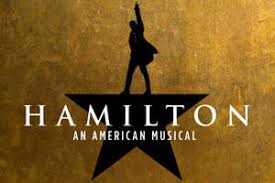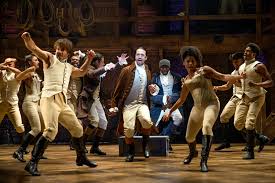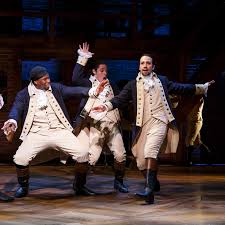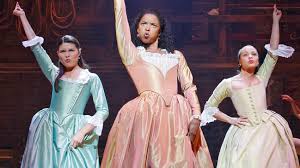 One of the highlights of the past few weeks of lockdown has been the release of the film version of the stage show Hamilton. Since its debut on the New York stage it has been highly acclaimed, and now we can all see it.
One of the highlights of the past few weeks of lockdown has been the release of the film version of the stage show Hamilton. Since its debut on the New York stage it has been highly acclaimed, and now we can all see it.
Written and performed by New York born Puerto Rican Lin-Manuel Miranda, the show tells the story of Alexander Hamilton, one of the Founding Fathers, of humble Caribbean origins, actively involved in promoting the American Revolution and in writing the US Constitution. The story involves love, war, intrigue and passion, and brings alive a significant chapter of American history and identity.
But what is so stunning and gripping is the way the music chosen to portray this is Urban Hip-Hop and a blend of styles drawn from “black and brown” music and culture, just as the actors are. The multi-layered conversations in the rap idiom are heavy with modern day allusions, and the rhyt hm and mix are infectious and powerful.
hm and mix are infectious and powerful.
Surfacing as it does in the midst of the Black Lives Matter protests it is testimony to the vibrancy of this movement and its Latino neighbour. It is significant that Miranda is also working on a project to bring West Side Story back to its Puerto Rican roots by translating the libretto into Spanish.
However, without denying for a moment the hugely deserved success and importance of the musical, there is an elephant in the room. Despite occasional references to the abolition of slavery, the Founding Fathers essentially continued the system that the British started, and some would say the British did more in the end towards abolition than the United States.
This is similar to the story all over the Americas. Colonial oppression was booted out, but the newly independent states continued to oppress significant sectors of their people, specifically the black and the brown. In Latin America, as in the USA, the First People continued to suffer despite the high minded liberal ideals of the liberators.
Slavery has obviously been widely discussed and decried recently, but little has been said about those who were displaced by the first Europeans to arrive, and generations after them, including those who believed in emancipation.
Good art reflects and even changes society, but we must not allow it to idealize our blind spots.
-
Archives
- November 2023
- May 2022
- May 2021
- July 2020
- June 2020
- December 2019
- June 2019
- April 2019
- March 2019
- December 2018
- May 2018
- April 2018
- March 2018
- April 2016
- September 2015
- March 2015
- February 2015
- January 2015
- August 2012
- August 2011
- January 2011
- December 2010
- November 2010
- August 2010
- June 2010
- April 2010
- March 2010
- January 2010
- December 2009
- November 2009
- October 2009
- September 2009
- August 2009
- June 2009
- May 2009
- April 2009
- March 2009
- December 2008
- August 2008
- June 2008
- April 2008
- March 2008
- February 2008
- January 2008
- December 2007
- November 2007
- October 2007
- September 2007
- August 2007
-
Meta
